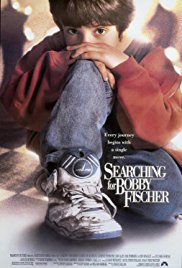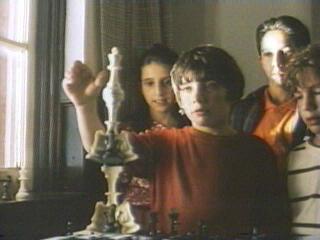Chess is a game of strategy and skill. The object of the game is to put your opponent into “check mate,” a position in which his king cannot move out of check. Chess descended from the Indian game “chaturanga” in which each player had four types of pieces, one each for the four divisions of the Indian army of the time: elephants, cavalry, chariots and infantry. Modified by the Persians and the Arabs, the game came to Europe in the 10th century. The modern version of chess was developed in Italy in the 14th century. Since about the 15th century the game has been extremely popular, with the best players writing widely read manuals and books on the theory of chess. Great competitions between masters of the game have been a feature of the sport since the 1700s. With the advent of computers, there has been an effort to get them to compete with men in playing chess.
Bobby Fischer was one of the greatest chess players of all time. In 1972 he won the world chess championship, the first time that a non-Russian had won the title in decades. He then disappeared, surfacing only to make millions by playing a chess championship in Yugoslavia, which at that time was pursuing a war of ethnic cleansing in Bosnia. Getting paid to play a match in Yugoslavia was against U.S. sanctions prohibiting trade with that country and Fischer lost his citizenship as a result. Later in life, while Fischer was still a fugitive from U.S. justice, he was reduced to making anti-U.S. and anti-Semitic broadcasts from a minor league Philippine Radio station. Fischer died on January 17, 2008.
Fischer, now a fugitive from U.S. justice, was reduced to making anti-U.S. and anti-Semitic rantings on a minor league Philippine Radio station. The last we heard, Fischer was arrested in Japan for trying to use a German passport and claimed German citizenship.
Bobby Fischer once said “chess is life.” That was the risk for Josh. The moral of this film has been well stated by Roger Ebert in the Chicago Sun-Times, August 11, 1993:
By the end of “Searching for Bobby Fischer” we have learned something about tournament chess, and a great deal about human nature. The film’s implications are many. They center around our responsibility, if any, to our gifts. If we can operate at the genius level in a given field, does that mean we must – even if the cost is the sort of endless purgatory a Bobby Fischer has inhabited? It’s an interesting question, and this movie doesn’t avoid it.
At the end, it all comes down to … the choice between truth and beauty. What makes us men is that we can think logically. What makes us human is that we sometimes choose not to.



